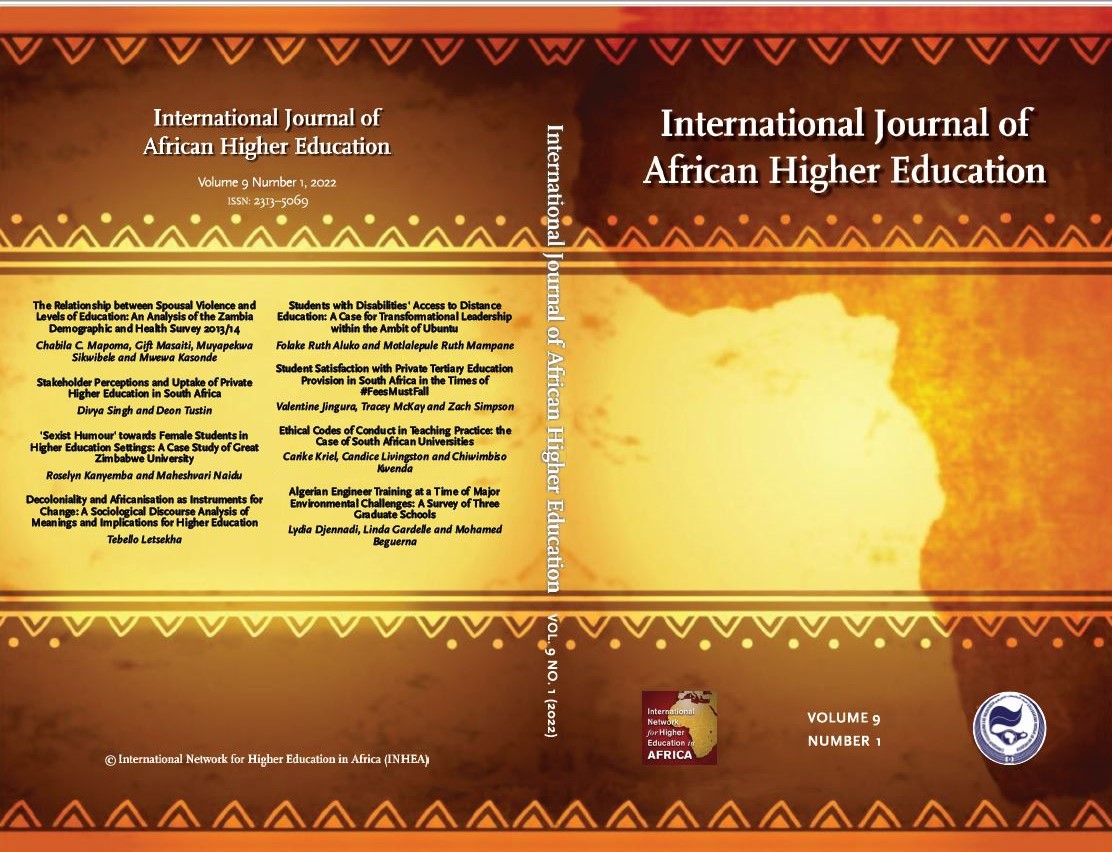Stakeholder Perceptions and Uptake of Private Higher Education in South Africa
DOI:
https://doi.org/10.6017/ijahe.v9i1.15231Abstract
Globally, private higher education offers access to higher education, especially where public provision cannot cope with demand. However, South Africa does not mirror this trend. This article reports on a survey of stakeholders’ understanding of private higher education in South Africa that aimed to determine why it has not grown to complement public higher education in mitigating the access gap. The findings point to limited knowledge of private higher education, especially amongst parents. Furthermore, there are perceptions that it is expensive with low returns on investment, as well as a lack of trust in the value of the qualifications and quality of the tuition offered. However, the respondents also acknowledged the advantages of private higher education and graduate success. Based on these results, addressing perceptions of costs and more effective communication should be priorities for both this sub-sector as well as the national authorities. This is important as South Africa will be unable to reach the National Development Plan’s target of 1.62 million students in higher education without the private higher education sub-sector complementing public universities.
Key words: Private higher education, reasons to select private HEIs, teaching and learning quality, private higher education cost, graduate employability, contribution to the HE sector
Downloads
Published
How to Cite
Issue
Section
License
Copyright (c) 2022 Divya Singh, Deon Tustin

This work is licensed under a Creative Commons Attribution-NonCommercial-NoDerivatives 4.0 International License.

